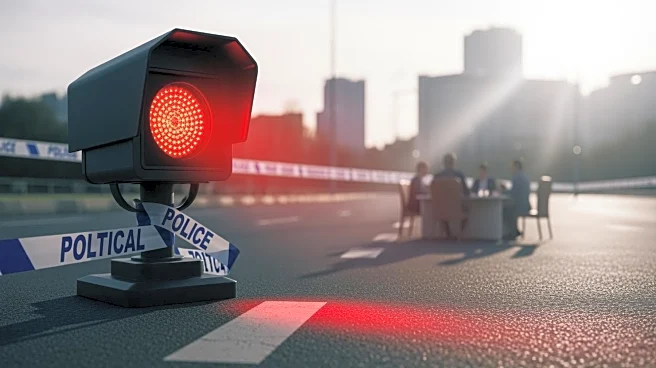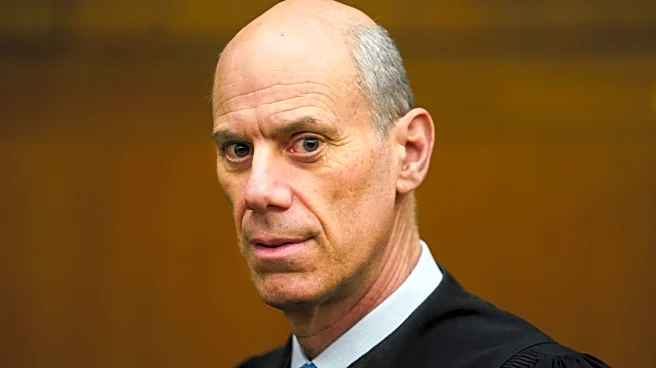What's Happening?
Newburgh Heights, a village in Ohio, has collected $4.3 million in fines from traffic cameras over a year, according to state records. This revenue was generated despite state laws designed to limit profits
from automated ticketing. The village's use of traffic cameras, particularly in non-school zones, has sparked discussions about the financial implications and the potential for other municipalities to follow suit. Cleveland, which previously banned traffic cameras, is considering reintroducing them as part of Mayor Justin Bibb's 'Vision Zero' plan to reduce traffic fatalities.
Why It's Important?
The substantial revenue from traffic camera fines in Newburgh Heights highlights the financial potential of such systems for municipalities. However, it also raises questions about the balance between public safety and revenue generation. The debate in Cleveland about reintroducing traffic cameras reflects broader concerns about traffic enforcement, public opinion, and the effectiveness of automated systems in reducing accidents. The financial penalties associated with state funding reductions for non-school zone cameras add another layer of complexity to the decision-making process for local governments.
What's Next?
Cleveland's consideration of reintroducing traffic cameras could lead to a shift in local traffic enforcement strategies. If voters are persuaded to lift the ban, it may set a precedent for other cities to explore similar measures. The ongoing debate will likely involve discussions about public safety, revenue needs, and community acceptance. The outcome could influence future policies on traffic management and automated enforcement across the state.










